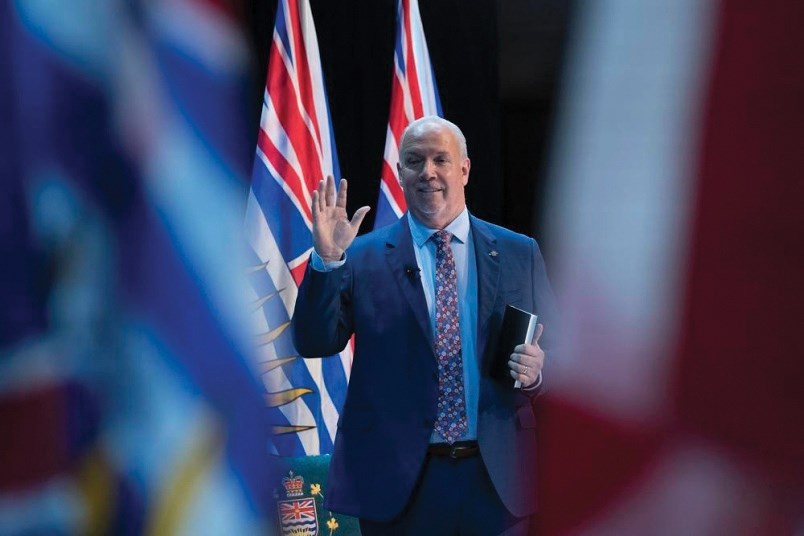British Columbians aren't pleased with some of the B.C. NDP government's proposed changes to the Freedom of Information and Protection of Privacy Act, new poll data shows.
Some 73% of 802 respondents to the IPSOS poll opposed government bodies storing their personal information outside Canada. The B.C Freedom of Information and Privacy Association (FIPA) commissioned the poll.
For some time, it has been required by law that the data of British Columbians be stored on servers located in Canada so that other countries could not seize data stored on servers in their countries.
That shifted since the pandemic started as health information was shared across borders to fight COVID-19 under a ministerial order. The government has said the legislative change is needed to keep up with the pace of technology.
However, Information and Privacy Commissioner Michael McEvoy stated in a letter to Minister of Citizens Service Lisa Beare that he had a "deep concern" about several of the B.C. NDP's proposed FIPA changes. In particular, he was concerned about allowing British Columbian's data to be stored outside Canada and thus subject to foreign law.
Reaction to fee to file freedom of information requests
In that same IPSOS poll, 61% of respondents opposed requiring people to pay a fee to file a freedom of information request (FOI).
Beare has said a fee of $25, an increase from nothing, could be charged for each request under the legislation.
That suggestion has drawn heavy fire from multiple groups, including journalism schools and associations.
"I remain optimistic that the minister will do the right thing and defer to the Special Legislative Committee rather than ram through legislation that is so clearly out of step with public onion," FIPA executive Jason Woywada said.
In a statement to Glacier Media, a ministry spokesperson said the province's polling through IPSOS indicates a majority of British Columbians have accessed or used online provincial services in the past year. Further, their polling found that the respondents' top concerns include having those online government services available to them while keeping their information safe.
The statement said the ministerial order expires at year's end.
"Within the proposed amendments, in order to keep people's personal information safe, we are addressing privacy controls such as extending existing government requirements for a privacy management program across the entire public sector, requiring all public bodies to conduct privacy impact assessments to ensure they appropriately handle personal information and implementing mandatory privacy breach reporting."
However, McEvoy has said the details on how the legislation would be applied are scant as the regulations have yet to appear.
The poll also found that British Columbians believe the Office of the Premier (77%), the Legislative Assembly (77%), corporations owned or controlled by public bodies (74%), municipal governments (80%), and police departments (86%) should all be subject to FOI requests.
The ministry said language in the bill regarding the premier's office had been amended for clarification.
"The Premier's Office was under the list of public bodies that are not ministries and therefore officially subject to different rules under the legislation," the ministry said. "However, they've always been treated as a ministry, and this change reinforces that. We have added the Premier's Office to the definition of ministry to remove any doubt."
The poll was conducted Nov. 5-12 and, IPSOS said it is accurate to within +/ -3.9 percentage points, 19 times out of 20, had all adult B.C. residents been polled.
Twitter.com/jhainswo


